How Hades and Going Under soothe the sting of failure
Rich storytelling and sassy satire are what elevate these dungeon crawlers.
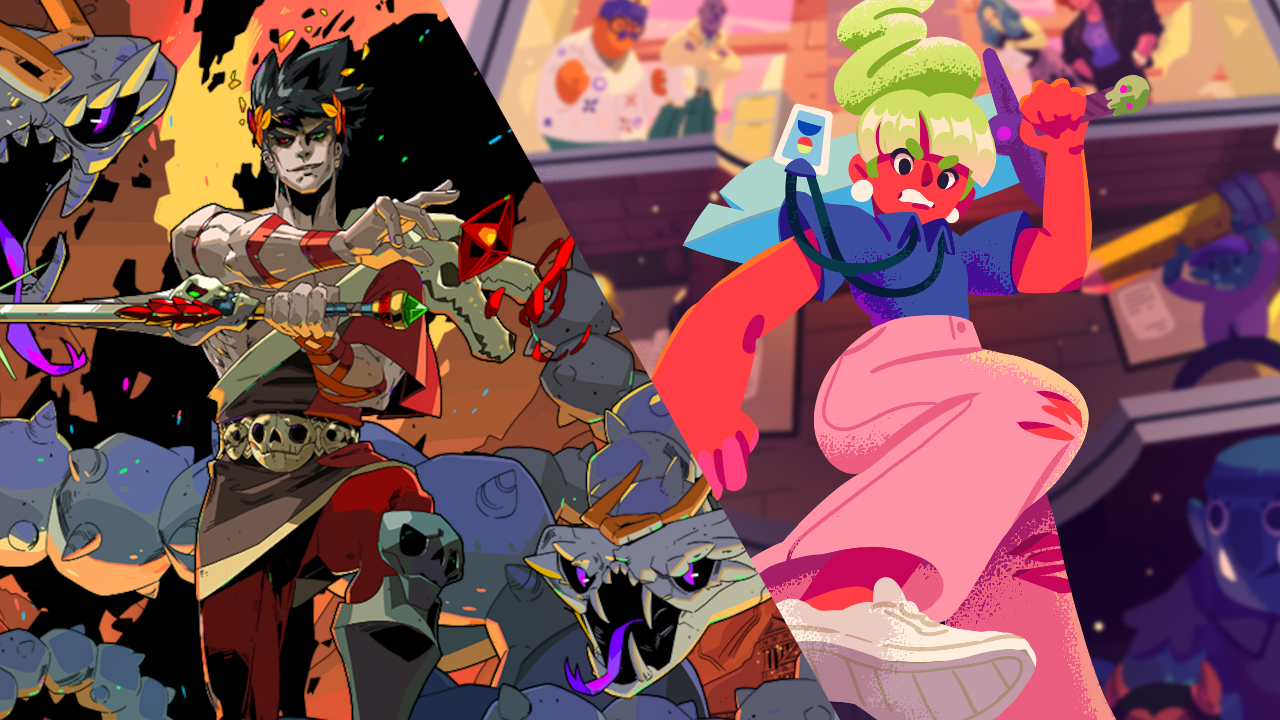
As someone who has little patience for death in games, I've reluctantly avoided roguelikes in an endeavour to keep my hot-headedness in check. It's not the permadeath that gets my goat, it's the feeling of not progressing without a certain level of steely persistence, which I, unfortunately, do not have. I've felt the exhilaration that comes with a solid run, but as fun as Spelunky, Dead Cells, and The Binding of Isaac can be, if you make a stupid mistake and have to return to the beginning with nothing to show for it—it totally sucks.
This balance of progression versus frustration is at the core of roguelikes, but there's always a certain annoyance that comes with the repetition of failure, leaving players feeling deflated and defeated. But Supergiant's Hades and Aggro Crab's Going Under have both found clever ways to escape this frustration in failure. They both keep the main features of a roguelike but also understand that it helps to have perks outside of the game's dungeon crawls to keep you going.
Supergiant's mythological dungeon crawler Hades has all the features of a traditional roguelike. Zagreus' escape from the Hellish Underworld is built from procedurally generated areas and you lose all your god-given boons and powerful abilities when you die in a splash of blood. Hades keeps hopes high with plenty of collectables and permanent upgrades, but the main reason for delving back into its hellish depths is to learn more of its story.
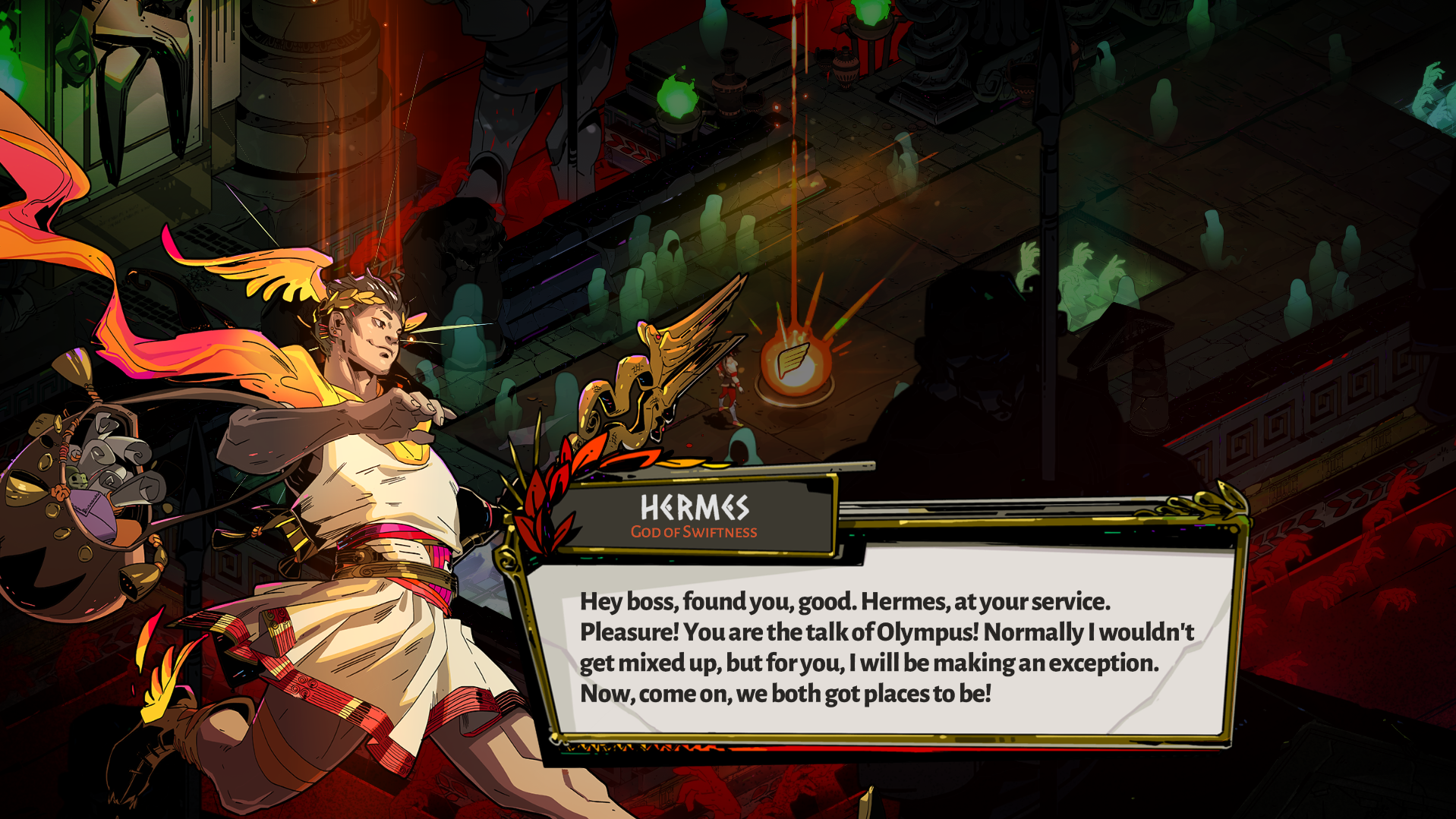
If you're familiar with any Greek mythology, you'll know that these gods thrived on capital D drama. Hades drops you right into the middle of a family dispute and learning more about the narratives that tie these gods and demi-gods together act as intriguing rewards. Each time you attempt to escape the dark realms of the underworld, you'll meet characters whose little comments hint at larger parts of the story.
Shady comments and snippets of information begin to build a bigger portrait of this dysfunctional family
There's a familiarity between characters that makes this drama all the more interesting. Shady comments and snippets of information begin to build a bigger portrait of this dysfunctional family, and it makes you want to learn more. You don't even know the reason why Zagreus is relentlessly trying to escape his home until you fail a certain amount of runs, making them not really feel like failures at all.
Every time I died in Hades, I always looked forward to catching up with the characters I would see back in the main hub and on my next run, wanting to learn more about them and how they fit into the world. After finishing an area you often get a choice between which god you would like to receive a boon from next, and I often felt like I was navigating the inner workings of a family tree, wanting to know more about a god I didn't come across as often but one I had heard about from others. Coupled with Hades' gorgeous artwork and voice acting that goes down as smooth as Dionysus's wine, the story is always more than enough reason to die and start again.
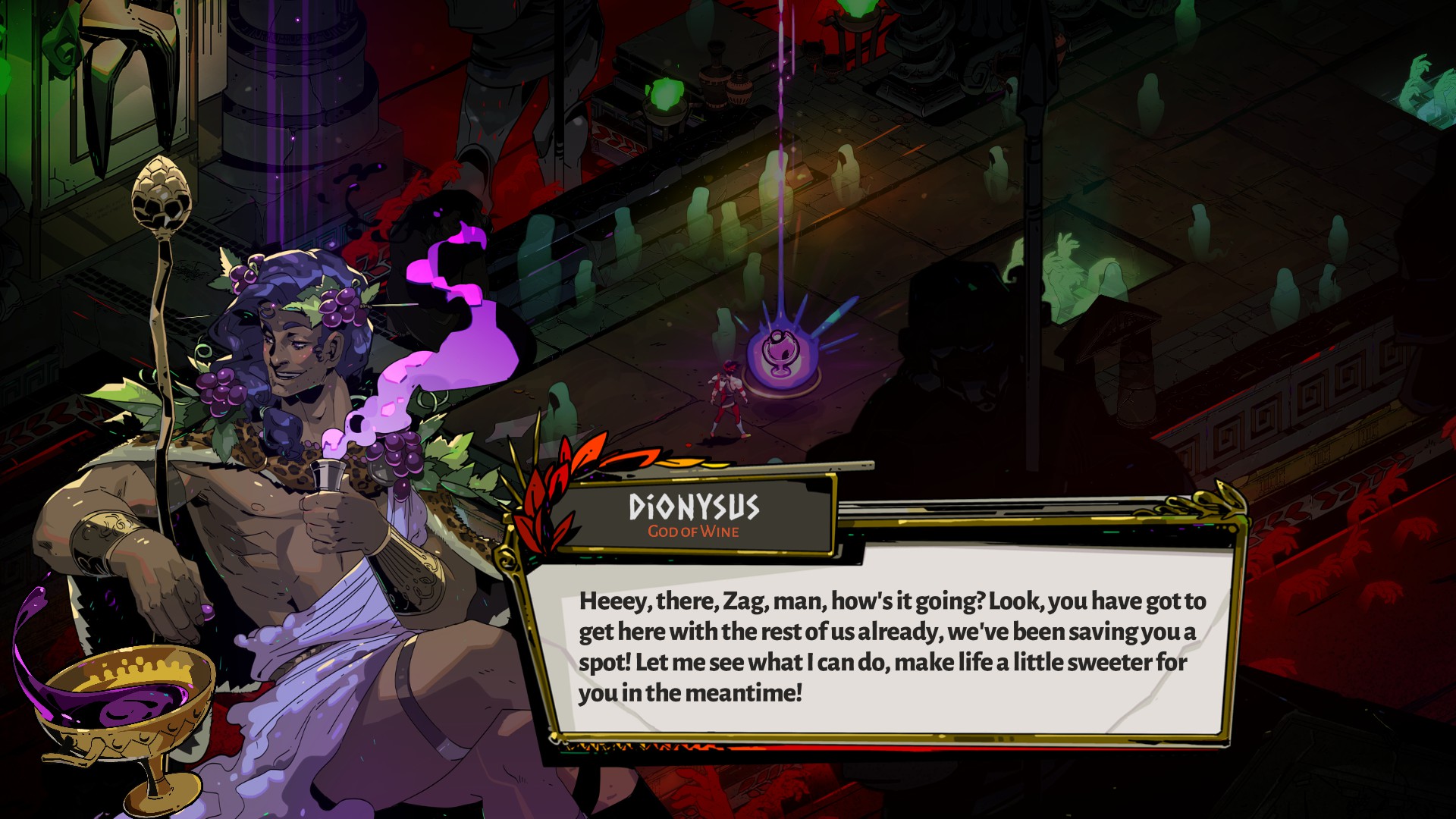
It's a roguelike that bursts with colour and satirical humour, poking fun at the often absurd culture of Silicon Valley start-ups.
Where Hades laments at Zagreus' struggle to escape, Going Under's tone is the total opposite. Your battle through the dungeons is just another day on the job—well, job is the wrong word here. In this satirical dungeon crawler, you play as Jackie, a young woman who has started an unpaid internship as a marketing assistant at Fizzle Co., a company that creates drinks with algorithmically-infused flavour technology.
Keep up to date with the most important stories and the best deals, as picked by the PC Gamer team.
It's a roguelike that bursts with colour and satirical humour, poking fun at the often absurd culture of Silicon Valley start-ups. Every item, character, world, upgrade, item, shopkeeper all have a comical twist and clever comment on the the toxic environment of corporate tech.
You can tell the developer had a lot of fun designing each dungeon in Going Under. A cryptocurrency app Styxcoin (a sassy dig at Bitcoin) is a dingy mine where skeletons are relentless mining for coins. There's also Winkydink, an app where you can only talk in emoji and whose company looks more like a raunchy, neon night club than a corporation.
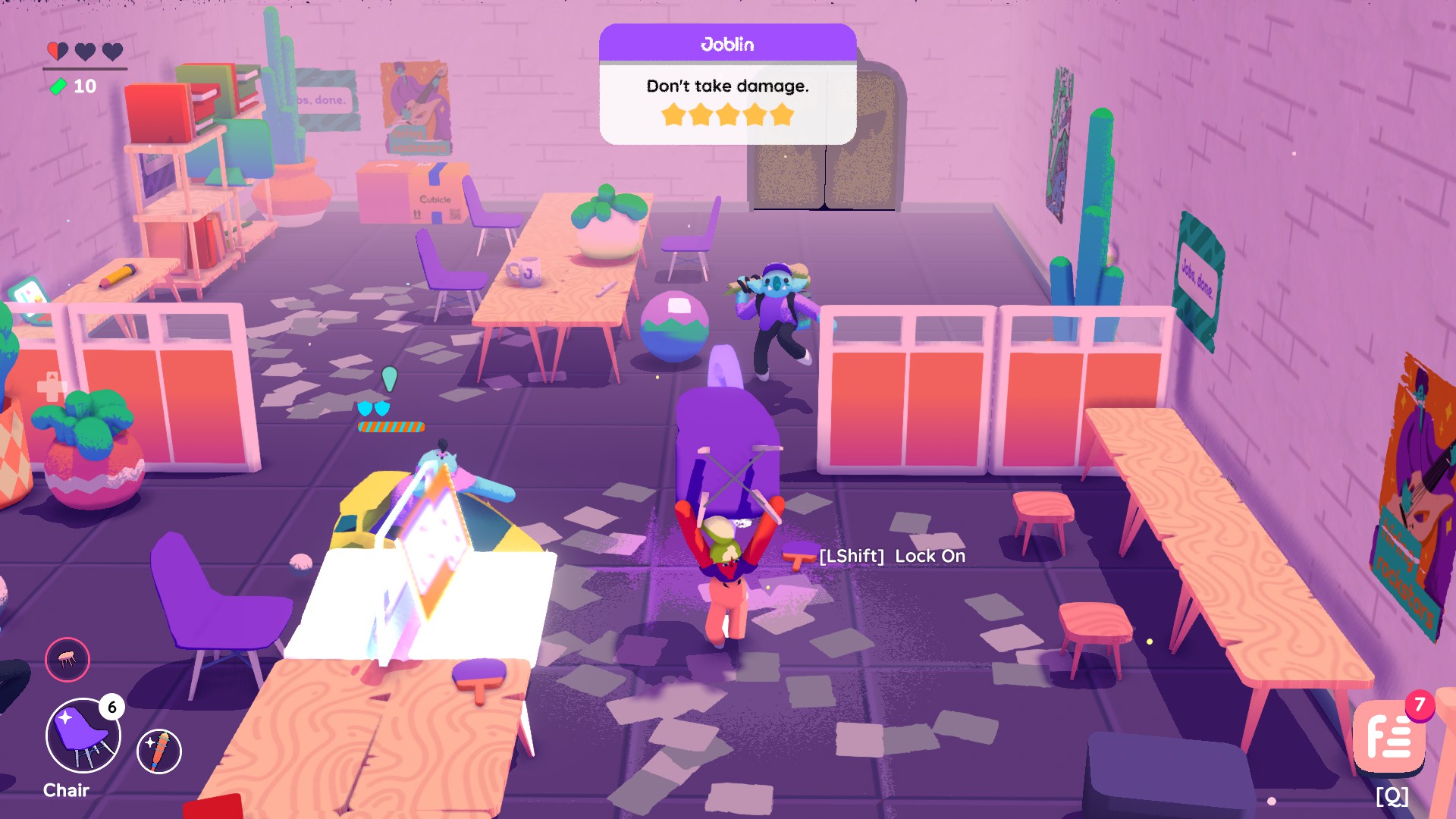
Postal drones deliver your power-ups, special abilities are listed through your company phone, and you can buy an extortionately priced avocado toast with flavour text that reads "a delicious alternative to homeownership" and only heals you one and a half hearts.
Alongside its cheeky corporate satire is its colourful 3D art, which is a whole world away from the gloomy dungeons of other roguelikes. There's a satisfying burst of colour as you thump an enemy on the head, and a comical explosion of paper money when they die. It's a roguelike full of chaotic energy, and its clever corporate twists on traditional roguelike elements keeps you wanting to come back for more, ready for the next punchline.
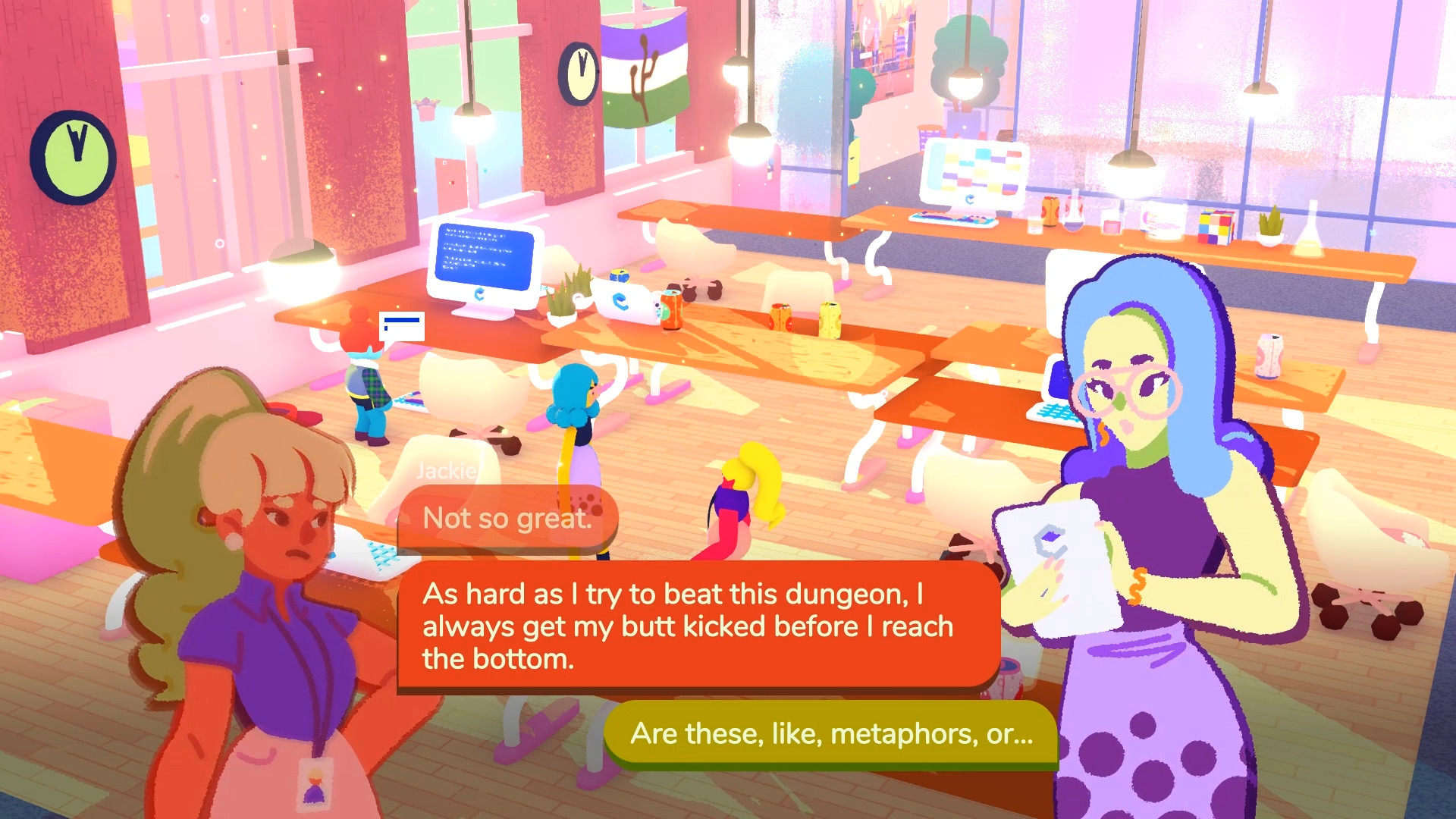
Both Hades and Going Under have found ways of consoling the feeling of failure through storytelling and comedy. In both games, I died with my spirits high and always felt I had something fun to return to after I got my butt kicked. Both roguelikes have found their own way of making progression and persistence fun, and that's pretty incredible when you're dealing with a demon-filled Underworld and the capitalistic nightmare of a tech-startup economy. I don't know which is worse.
Rachel had been bouncing around different gaming websites as a freelancer and staff writer for three years before settling at PC Gamer back in 2019. She mainly writes reviews, previews, and features, but on rare occasions will switch it up with news and guides. When she's not taking hundreds of screenshots of the latest indie darling, you can find her nurturing her parsnip empire in Stardew Valley and planning an axolotl uprising in Minecraft. She loves 'stop and smell the roses' games—her proudest gaming moment being the one time she kept her virtual potted plants alive for over a year.


